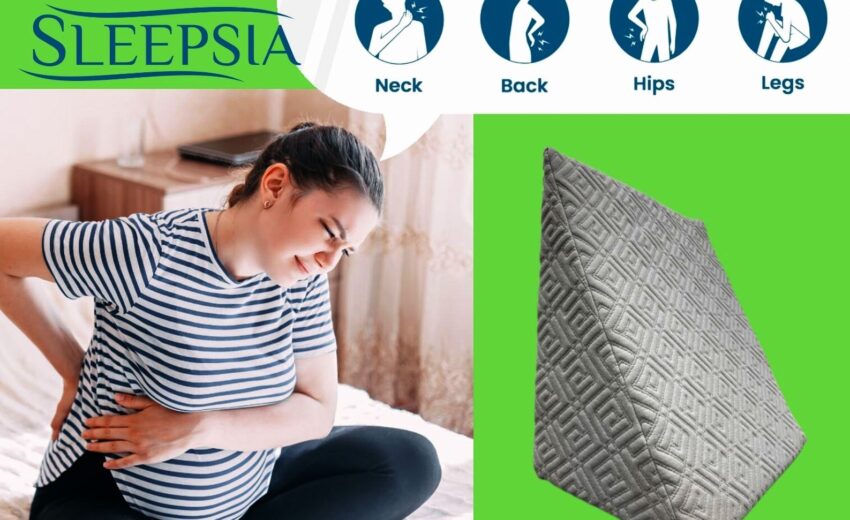
Why Back Pain During Pregnancy
Pregnancy is a time of great change for both mother and child. With growth comes an increased risk of back pain, which can be quite debilitating. In this blog post, we will explore the reasons why back pain during pregnancy occurs and offer some tips on how to reduce it. From stretches to exercises, learn everything you need to know in order to get through this difficult stage without too much pain.
Back Pain During Pregnancy
Back pain during pregnancy is a common problem. It can be caused by a variety of things, including muscle tension and pressure, the baby’s weight, and the position of the uterus.
Most pregnant women experience back pain at some point in their pregnancies. However, it is important to remember that back pain does not always mean that there is something wrong with your baby. In most cases, back pain simply indicates that you are experiencing some degree of musculoskeletal discomfort.
If you are experiencing back pain, it is important to consult your obstetrician or other medical provider. They will be able to determine the best course of action for you and your baby. In most cases, back pain can be treated with a variety of measures, including medications, chiropractic care, massage therapy, and exercise.
What Causes Back Pain During Pregnancy
Most pregnant women experience back pain at some point during their pregnancy. Back pain can be caused by a variety of factors, including pregnancy itself, pelvic pressure, and childbirth. While there is no definitive answer as to why back pain occurs during pregnancy, there are some common culprits that may play a role.
Pregnancy itself can cause increased pressure on the lower back due to the added weight of the fetus and placenta. This increased pressure often leads to back pain, especially in later months of pregnancy when the baby begins to grow larger and heavier. Pelvic pressure also plays a role in causing back pain during pregnancy; as the baby grows larger, the pelvic muscles become tighter and tend to push against the spine more often.
Childbirth can also be a major factor in causing back pain during pregnancy. During labor and delivery, gravity causes the uterus to pull on nerves and spinal cord tissue, which can lead to chronic back pain. Additionally, birthing positions that involve squatting or kneeling for long periods of time can also aggravate existing back pain conditions.
Fortunately, most pregnant women suffering from back pain find that proper treatment options exist that can greatly improve their quality of life. Back exercises tailored specifically for pregnant women are often very effective in relieving tension headaches and other types of neck discomfort associated with carrying a baby. Additionally, over-the-counter medications such as ibuprofen or acetaminophen can help relieve minor aches and pains associated with pregnancy without any serious side effects. If back pain is severe or persistent, a doctor may recommend more serious treatment options, such as surgery or radiation therapy.
Treatment Options for Back Pain during Pregnancy
Back pain during pregnancy is common and can be quite debilitating. There are a number of treatment options available, and the best approach depends on the cause of the pain. If back pain is caused by a slipped disc, then traditional treatments such as traction and exercise may be effective. Anti-inflammatory medications may also be prescribed to reduce inflammation. If back pain is due to a herniated disc, surgery may be necessary to remove the disc. In some cases, injections into the spine or use of a stent may be recommended to help relieve the pressure on the spinal cord.
Why Use A Wedge Pillow During Pregnancy?
When pregnant, it’s important to stay as healthy as possible. One way to do that is by using a wedge pillow during pregnancy. Wedge pillows are design to help relieve back pain. And they’re especially helpful during the later months of pregnancy when your body is expanding more than usual. By placing a wedge pillow between your lower back and the mattress. You can help relieve tension in your spine and reduce pressure on your tailbone. And since sleeping on your side also reduces pressure on the abdomen. A wedge pillow can also help with morning sickness. If you’re experiencing back pain, consider trying out a wedge pillow to see if it helps.
Tips for Avoiding Back Pain during Pregnancy
There are a few things you can do to help avoid back pain during pregnancy:
- Keep your spine as flexible as possible. This will help to prevent any pressure points from forming and causing pain.
- Stay off your feet as much as possible. This will give your spine a break and allow the discs in your back to stretch properly.
- Avoid sitting in one position for too long – keep moving around and take short breaks every now and then.
- Use a prenatal massage therapist if available – this can help to reduce inflammation and pain, both before and during pregnancy.
Prevention of Back Pain in Pregnancy
Back pain during pregnancy is a common problem, but it can be easily preventing.
Here are some tips to help you avoid back pain during your pregnancy:
- Take regular breaks. When you’re working or lifting something heavy, take a break every 20 to 30 minutes. This will help keep your back from getting too tired and strained.
- Keep your alignment straight. Make sure that your spine is always in line from your head to your feet – don’t tilt it to one side or the other. This will help reduce pressure on your back and spine.
- Exercise regularly. Pregnant women need the same amount of exercise as they did before they became pregnant – just make sure it’s moderate-intensity and low impact, so that it doesn’t aggravate your back.
- Eat healthy foods. Make sure you’re eating plenty of vegetables, fruits, and whole grains – these are all good sources of antioxidants, which can help reduce inflammation in the body and support joint health.
- Get enough sleep each night. Seven to eight hours of sleep each night is a good goal for pregnant women – if you can manage it! Sleep deprivation has been link with an increase in back pain sufferers, so make sure to get enough rest!
Cervical Memory Foam Pillow For Neck Pain
Conclusion
There is no one-size-fits-all answer to why back pain during pregnancy occurs. But as we continue to learn more about the condition. We are beginning to understand some of the key factors that may be contributing. During early pregnancy, your spine undergoes significant changes in alignment and shape, which can increase the risk of back pain. Additionally, women who suffer from chronic low back pain often experience increased levels of cramping and discomfort during late gestation. It is important to seek out treatment for back pain if it is causing you significant distress. Or preventing you from living a normal life. With proper care and guidance from your doctor or chiropractor. You should be able to manage your condition effectively. And enjoy a healthy pregnancy without any additional concerns about your health or wellbeing.


